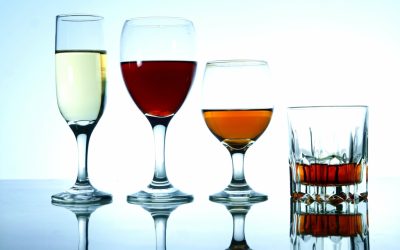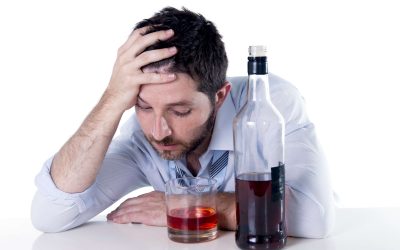A sponsor is someone who has made progress in their own journey to recovery. This person can be a continuous source of inspiration and guidance, someone to lean on as you strive to stay sober. Keep in mind that your needs and preferences are unique.
How Does Alcoholics Anonymous (AA) Define A “higher Power”?
Until the last half of this century, there were few if any treatments that seemed consistently effective in responding to the clinical needs of individuals who were abusing or dependent upon alcohol. As a result, as is so often the case when professionals are unable to provide adequate solutions for such problems, support or self-help groups emerged (Caplan, 1974). Alcoholics Anonymous (AA) is an extraordinary example of these groups. While AA emphasizes personal anonymity, many notable individuals have publicly acknowledged their participation in the program for various lengths of time. Open AA meetings welcome anyone interested in the program or learning about alcoholism.
Helpful Links for the 4th Step
If you think you may be an alcoholic or you have a desire to stop drinking, we urge you to learn more about AA The best way to learn more is to attend an AA meeting. There are hundreds of AA meetings in Connecticut everyday, meeting at almost any time of day. Alcoholics Anonymous (A.A.) is an international program focused on supporting people during alcohol recovery, with a goal of helping them achieve and sustain sobriety.
Sobriety anniversaries and coins
If you repeatedly drink more than you intend or want to, you may be an alcoholic. Information for people who may have a drinking problem. Also useful for those in contact with such people.
- These legacies are at the core of the organization’s approach to overcoming alcoholism.
- It can bring serenity, peace, and a closer connection to your Higher Power.
- A peer support group for alcohol addiction, otherwise known as a mutual self-help group or recovery support group, can be a crucial source of encouragement and guidance.
- These newsletters include information about A.A.
As a valuable privacy principle for new and longtime members might be read. Many meetings close with members joining in a moment of silence followed by a prayer, or perhaps by reciting the Responsibility Statement or other A.A. If the harm you caused someone included monetary damage and you do not have the financial means to make direct amends in a monetary way, this does not mean that you should not make amends to that person. Your AA sponsor, therapist, or another trusted person can help you determine how best to address making amends.
Some research suggests that women who are recovering from alcohol abuse and dependency may have differing needs from their male peers. Women for Sobriety (WFS) is the first national organization to focus specifically on the needs of alcoholic women. Like SMART Recovery, it appears to be as effective as 12-step programs. Sober Speak is a recovery-focused podcast and online community dedicated to sharing people’s experiences, strengths, and hope in long-term sobriety and early recovery. Attending regular AA meetings is a vital part of the recovery process, as it helps to foster a sense of community, accountability, and mutual support. Through these meetings, individuals in recovery can connect with others who understand their struggles, alcoholism symptoms share their experiences, and learn from the wisdom and insights of more experienced members.
Dive into information on service in A.A.
- They have been hurt by your actions, and they may not be willing to forgive and forget.
- People can choose to share their stories, and some receive AA chips.
- Perhaps you simply want to reduce your drinking rather than achieve lifelong abstinence.
- Its operations follow an “inverted pyramid” structure, allowing local groups significant autonomy.
- As a result, as is so often the case when professionals are unable to provide adequate solutions for such problems, support or self-help groups emerged (Caplan, 1974).
Others attend due to pressure from a loved one or because they are required by the court, such as after being arrested for drunk driving. As it is widely known, was founded in 1935 by Bill W. While each of these men had their own journey of recovery, it wasn’t until they met face to face that they realized the power of speaking with a “fellow sufferer” for achieving complete sobriety. Hosted by therapist Amy Morin, LCSW, this episode of The Verywell Mind Podcast, featuring multi-platinum award-winning singer Bryan Abrams, shares his sobriety journey and how he found treatment that actually worked. The book Alcoholics Anonymous describes the A.A. It also contains stories written by the co-founders and stories from a wide range of members who have found recovery in A.A.
We believe in the power of community, the transformative potential of personal growth, and the importance of extending support to others. Our approach to addiction treatment is holistic, integrating the physical, emotional, and other aspects of recovery into a cohesive whole. Alcoholics Anonymous was founded in 1935 by Bill Wilson and Dr. Bob Smith, two men who had struggled with alcoholism and found a solution in a spiritual approach to recovery. The organization’s roots can be traced back to the Oxford Group, a Christian movement that emphasized personal transformation and moral inventory. Open meetings tend to include a formal speaker who shares their story. These meetings are also an excellent opportunity to learn more about AA and other 12-step programs, regardless of whether or not you want to participate in one.
Millions of readers rely on HelpGuide.org for free, evidence-based resources to understand and navigate mental health challenges. Please donate today to help us save, support, and change lives. DRA has many similarities to AA, so if the 12 steps aren’t for you, DRA may not be the right choice, either. Another potential downside is the limited availability of meetings. Meetings are not as widely available as the sessions run by AA.
As stated in Tradition Three, “The only requirement for A.A. Membership is a desire to stop drinking.” Just as we are members of A.A. if we say we are, so are we members of a group if we say we are. Learn about Alcoholics Anonymous (AA), a self-help alcoholics anonymous (aa) is an example of fellowship for people with current or past alcohol use problems. According to Alcoholics Anonymous, their success rate is 50 percent, with 25 percent of members remaining sober after relapsing. Founded by Bill Wilson and Dr. Bob Smith, AA has grown into a global fellowship with meetings held in nearly every country. Alcoholics Anonymous (AA) has been around since 1935.




